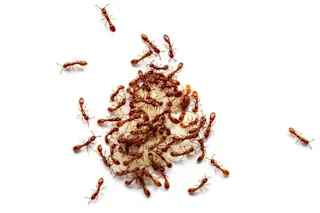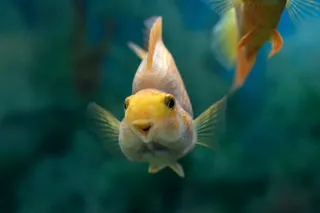How does an ant colony decide who’s fit to become a queen? In most cases, the larger a female ant grows to be, the greater chance it has to be crowned the queen of a colony. In fact, the size of ants governs the entire structure of their colonies, which are meticulously organized into multiple castes that fulfill specialized roles.
A new study published in the Proceedings of the National Academy of Sciences has found that genetics, above all else, is what often decides whether a female ant will be elevated to queen status or serve as a worker. While both environmental conditions and genes play a role in ant size, genetic variation helps a few female ants stand out from the rest, bestowing them with queen-like traits that emerge early.
Ant colonies generally consist of three types of ants: males (drones), non-reproductive females, and a queen.
The wingless, non-reproductive ...















